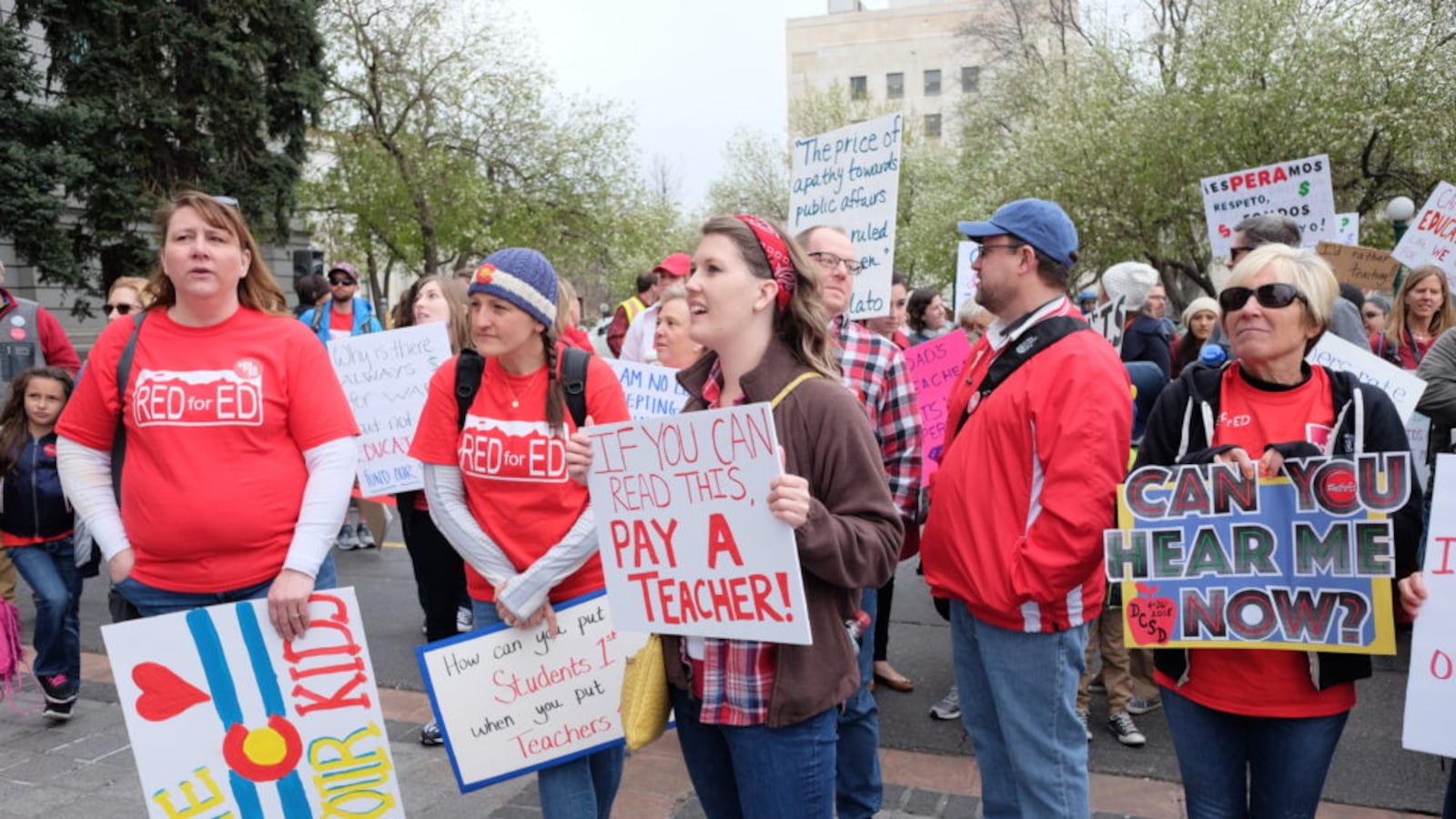After a year of teacher protests, an increasing number of Americans think teachers should be paid more, according to a new national survey.
Sixty-seven percent of respondents said that teacher salaries should increase, up from 61 percent last year, according to a survey conducted by the research magazine Education Next. The poll is notable for its close tracking of parents and teachers’ opinions on contested education issues, in addition to those of the broader public.
The 67 percent figure is the highest support for increasing teacher pay has been since 2008, just before the financial crisis. Support rose this year among members of all political parties, and was especially high among those from states with recent teacher protests, like West Virginia and Arizona.
Support for increasing teacher pay is slightly lower when respondents are told the average annual salary for teachers — 49 percent say we should increase it — though that number has risen 13 points since last year.
What’s behind this rise in support? The researchers offered two possible explanations: one, that those teacher walkouts and protests have bolstered support, and two, that people are more receptive to the idea of salaries rising when the economy is in good shape and wages across the economy are increasing, as they are now.
“These two explanations may in fact work together,” said Marty West, a Harvard professor and the magazine’s editor in chief.
Here are five other things we learned from the survey:
Agency fees are unpopular. In June, the Supreme Court said public unions — including teachers unions — cannot charge mandatory fees to non-union members. The decision is in line with public opinion: 56 percent of respondents oppose requiring teachers to pay agency fees, according to the survey.
A large gap exists between members of different political parties, with 56 percent of Republicans opposing the fees compared to 35 percent of Democrats. Notably, the survey was conducted before the Janus Supreme Court decision, so the researchers are unsure whether pro-union or anti-union campaigns since then have changed public opinion.
When people are given the arguments for and against agency fees, support increases by several points.
Support for charter schools has rebounded a bit. Last year’s survey included a 12 point drop in support of charter schools, one of the largest changes in public opinion in the survey’s 12-year history. This year, opposition to charter schools held steady (36 percent in 2017 to 35 percent in 2018), but support for charter schools increased 5 points, to 44 percent. The increase was concentrated among Republicans, widening the partisan divide on the issue.
Americans don’t like using race or income to assign students to schools. The survey finds that the majority of the public opposes taking race into account in school assignment decisions, with 57 percent opposed and only 18 percent supportive. Black and Hispanic respondents were also generally against the idea, though somewhat less so than white respondents.
Income-based affirmative action policies are equally unpopular, though opposition to both income and race-based policies has fallen slightly since the poll last asked the question in 2008.
In July, the U.S. Department of Education withdrew several Obama-era documents that had offered advice about how public schools could legally consider race to assign students to K-12 schools.
Support for school vouchers has increased. Opinions on sending public money to private schools in the form of vouchers are famously difficult to poll, because the results vary drastically based on how the question is worded. Here, 54 percent of the public backed a program described as giving families a “wider choice” in school; that’s up 9 points since last year. That’s surprising, since Education Secretary Betsy DeVos has championed the policy and is widely unpopular, according to previous polling.
In the Education Next poll, support is 10 points lower if the word “voucher” is introduced — which is likely why private school choice advocates often avoid the term. And a 2017 poll from another organization found that only 39 percent of respondents backed “allowing students and parents to choose a private school to attend at public expense.”
Teachers really oppose charter schools, vouchers, and merit pay. On those issues, teachers’ views diverge from the general public’s.
Fifty-five percent of teachers oppose charter schools, compared to 35 percent of the public. For vouchers, 58 percent of teachers oppose them, while 31 percent of the public does. And a full 73 percent of teachers oppose merit pay, compared to 36 percent of the public.


